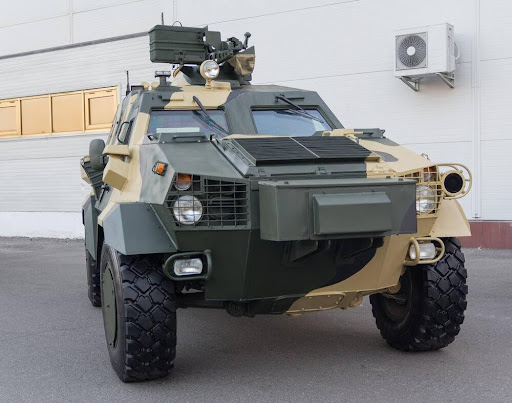Automotive
The Crucial Role of Military Vehicle Transport: A Deep Dive into Military Car Shipping

Military vehicle transport is a critical component of modern armed forces logistics, ensuring the timely and secure movement of military assets across national and international borders. The efficient deployment of military vehicles is essential for rapid response, strategic positioning, and overall operational success. In this article, we will delve into the intricacies of Military Car Shipping, exploring the challenges, strategies, and technologies involved in this specialized field.
Challenges in Military Vehicle Transport
Military vehicle transport poses unique challenges that demand specialized solutions. The sheer size and weight of military vehicles, coupled with their diverse configurations, make their transportation a complex task. Additionally, the need for security and confidentiality amplifies the difficulties associated with moving military assets.
One of the primary challenges is the diverse range of military vehicles, including tanks, armored personnel carriers, and specialized engineering vehicles. Each type requires specific handling, loading, and securing procedures, making it crucial for military car shipping services to be well-versed in the intricacies of each vehicle category.
Security and confidentiality are paramount in military operations. Protecting sensitive equipment and preventing unauthorized access during transportation are vital considerations. Military car shipping providers must employ stringent security measures, including advanced tracking systems, secure storage facilities, and personnel trained in handling classified materials.
Strategies for Successful Military Car Shipping
To overcome the challenges inherent in military vehicle transport, several strategies are employed to ensure the safe and efficient movement of military assets https://www.militarycarshipping.com/expedited-military-vehicle-transport/.
Specialized Equipment and Infrastructure: Military car shipping relies on specialized equipment such as heavy-duty transport vehicles, custom loading ramps, and secure holding facilities. Infrastructure designed to accommodate the unique dimensions and weight distribution of military vehicles is essential for successful transport.
Customized Loading and Unloading Procedures: Each type of military vehicle requires a tailored approach to loading and unloading. Specialized equipment, such as ramps and cranes, is often used to carefully lift and position vehicles onto transport vehicles. Rigorous training of personnel is essential to execute these procedures safely.
Advanced Tracking and Monitoring Systems: Real-time tracking and monitoring systems play a crucial role in military car shipping. These systems not only provide precise location information but also allow for continuous monitoring of environmental conditions, ensuring that vehicles are transported under optimal conditions.
Security Protocols: Military car shipping services implement stringent security protocols to safeguard sensitive equipment. These may include GPS tracking, armed escorts, and secure storage facilities. Personnel involved in transportation undergo rigorous background checks and security training.
International Coordination: Military operations often require the transport of vehicles across international borders. Successful military car shipping necessitates close coordination with customs authorities, adherence to international regulations, and diplomatic efforts to secure smooth cross-border movement.
Technological Advancements in Military Vehicle Transport
The advancement of technology has significantly influenced the field of military vehicle transport. Innovations in materials, communication, and automation have enhanced the efficiency and security of military car shipping.
Autonomous Vehicle Transport: The development of autonomous vehicle technology is revolutionizing military logistics. Autonomous transport vehicles equipped with advanced navigation systems can securely and efficiently move military vehicles, reducing the risk associated with human error.
Advanced Materials for Protection: Military vehicles often require protection against environmental factors, theft, and espionage. Advanced materials, such as lightweight yet durable alloys and composite materials, are employed to create secure enclosures for vehicles during transport.
Communication and Information Systems: Integrated communication systems allow real-time monitoring of military vehicles in transit. This not only enhances security but also enables quick response to any unforeseen circumstances, ensuring the safety of the transported assets.
Electric and Hybrid Vehicles
The global push towards sustainable energy solutions is impacting military vehicle transport as well. As electric and hybrid military vehicles become more prevalent, the logistics surrounding their transport will require adaptations. Charging infrastructure, specialized handling for high-voltage systems, and considerations for prolonged transport times due to charging requirements are challenges that military car shipping providers may face in the future.
Cybersecurity Measures
As vehicles become more technologically advanced, incorporating features such as autonomous driving capabilities and advanced communication systems, the need for robust cybersecurity measures becomes paramount. Military car shipping providers will need to invest in cybersecurity protocols to protect sensitive information and prevent potential cyber threats that could compromise the security of military assets during transport.
Climate-Resilient Transport
Climate change poses a unique set of challenges for military vehicle transport. Extreme weather events, rising sea levels, and shifting geopolitical landscapes may necessitate the development of climate-resilient transport strategies. Military car shipping providers will need to invest in technologies that can withstand adverse weather conditions and adapt to the changing global climate.
Conclusion
Military vehicle transport, with a specific focus on military car shipping, is a multifaceted and crucial aspect of modern military operations. The challenges involved in moving diverse and heavy military vehicles demand specialized strategies and technologies. From customized loading procedures to advanced tracking systems, the field continues to evolve with the integration of cutting-edge technologies. As military forces around the world strive for increased mobility and responsiveness, the role of military vehicle transport remains paramount in maintaining strategic readiness and operational effectiveness.
-

 Business5 days ago
Business5 days agoS&P 500 Soars in Best May in Decades Amid Tariff Relief and Nvidia’s Surge
-

 Immigration5 days ago
Immigration5 days agoTrump’s Immigration Crackdown: Legal Battles and Policy Shifts
-

 Healthcare7 days ago
Healthcare7 days agoAttention Economy Arms Race: Reclaim Your Focus in a World Designed to Distract You
-

 Business5 days ago
Business5 days agoUS Stock Market Soars in May Amidst Tariff Tensions and Inflation Worries
-

 Government5 days ago
Government5 days agoTrump Administration’s Government Reshaping Efforts Face Criticism and Legal Battles
-

 Business5 days ago
Business5 days agoTrump’s Tariffs: A Global Economic Reckoning
-

 Foreign Policy3 days ago
Foreign Policy3 days agoInside Schedule F: Will Trump’s Federal Workforce Shake-Up Undermine Democracy?
-

 Press Release2 days ago
Press Release2 days agoIn2space Launches Campaign to Make Space Travel Accessible for All
















